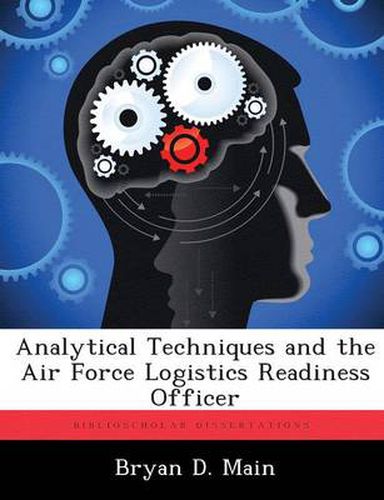Readings Newsletter
Become a Readings Member to make your shopping experience even easier.
Sign in or sign up for free!
You’re not far away from qualifying for FREE standard shipping within Australia
You’ve qualified for FREE standard shipping within Australia
The cart is loading…






This title is printed to order. This book may have been self-published. If so, we cannot guarantee the quality of the content. In the main most books will have gone through the editing process however some may not. We therefore suggest that you be aware of this before ordering this book. If in doubt check either the author or publisher’s details as we are unable to accept any returns unless they are faulty. Please contact us if you have any questions.
As the Air Force begins to implement the Expeditionary Combat Support System (ECSS), it is imperative that Air Force logisticians competently analyze logistics data. This exploratory study sought to determine which analytical skills are useful for Logistics Readiness Officers (LROs), as reported by active-duty LROs in grades O1-O5 and their supervisors. The research question was answered through a comprehensive literature review and the use of survey methodology. Over five hundred LROs and supervisors provided inputs. Analysis of survey responses found that Forecasting, Graphical Statistics and Descriptive Statistics are the analytical techniques valued most by both LROs and their supervisors. LROs and their supervisors valued the same techniques, though supervisors considered them to be more important. Company grade officers reported a higher degree of usefulness for each technique than field grade officers did. Responses were compared across groups of LROs and found to be consistently similar. This research noted the reported importance of Forecasting techniques among LROs and identified a potential gap between perceived usefulness and competence levels.
$9.00 standard shipping within Australia
FREE standard shipping within Australia for orders over $100.00
Express & International shipping calculated at checkout
This title is printed to order. This book may have been self-published. If so, we cannot guarantee the quality of the content. In the main most books will have gone through the editing process however some may not. We therefore suggest that you be aware of this before ordering this book. If in doubt check either the author or publisher’s details as we are unable to accept any returns unless they are faulty. Please contact us if you have any questions.
As the Air Force begins to implement the Expeditionary Combat Support System (ECSS), it is imperative that Air Force logisticians competently analyze logistics data. This exploratory study sought to determine which analytical skills are useful for Logistics Readiness Officers (LROs), as reported by active-duty LROs in grades O1-O5 and their supervisors. The research question was answered through a comprehensive literature review and the use of survey methodology. Over five hundred LROs and supervisors provided inputs. Analysis of survey responses found that Forecasting, Graphical Statistics and Descriptive Statistics are the analytical techniques valued most by both LROs and their supervisors. LROs and their supervisors valued the same techniques, though supervisors considered them to be more important. Company grade officers reported a higher degree of usefulness for each technique than field grade officers did. Responses were compared across groups of LROs and found to be consistently similar. This research noted the reported importance of Forecasting techniques among LROs and identified a potential gap between perceived usefulness and competence levels.